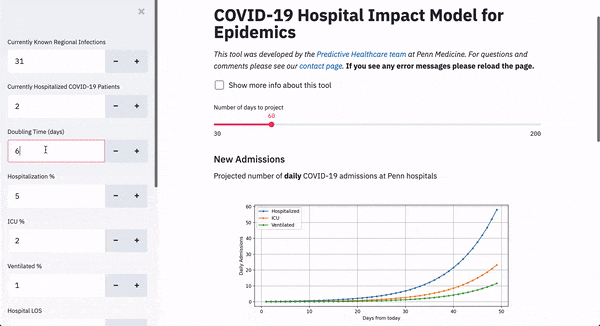At the start of the pandemic last year, Philly’s tech community did what it often does best: innovate.
When the most of the world was uncertain, jobs halted in their tracks and everyone’s mind was on how to slow the spread of a deadly disease, technologists across the region began building. In the weeks following the stay-at-home-order in Philadelphia, tech projects became an answer to helping us operate amid the chaos.
We also saw tech as a solution. Zoom parties and remote work, of course, took the place of in-person interactions. But it also aided in the creation of life-saving personal protective equipment, in a solution for college students with canceled internships, and in hospitals getting a grasp on their resources and capacity. We’ve also seen how the pandemic has highlighted issues like accessibility, and become the focus of new startups, such as Journal My Health, an app for COVID-19 long haulers and others with chronic health conditions.
While the pandemic is not over, we stand in a much different place today, with more accessible testing, readily available and effective vaccines, and much more knowledge about the virus. For Tech + Health Month, Technical.ly checked in with some of those earliest pandemic projects to see where they are now.
CHIME
One of the first projects we noted was released the week the pandemic took over the area, and was a collaboration from Penn Medicine and Code for Philly. Called CHIME, or COVID-19 Hospital Impact Model for Epidemics, the tool used SIR modeling, which computes the theoretical number of people infected with a contagious illness in a closed population over time to predict outcomes.
The open-source tool persists — hospitals can still forecast their resource needs. The team is also actively developing BayesCHIME, a tool to make use of more data and provide probabilistic forecasts beyond peak infections.
Earlier this year, Code for Philly was one of seven volunteer-driven Code for America brigades to receive part of a $1 million investment from the Knight Foundation. Lilian Coral, Knight’s director of national strategy and technology innovation, called out Code for Philly’s work on CHIME as one standout way local brigades are using technology to better their communities.
CoverAid PHL
When it became clear that healthcare workers (and regular people) would need masks to slow to spread of the virus, makers, individuals and organizations — including makerspace NextFab — who wanted to create a supply of PPE gathered in an open community called CoverAid PHL.
The org is no longer running, as it was an emergency measure to manage supply of PPE until it could be distributed throughout the region. But in the two months that it did operate between March and May 2020, it delivered 60,000 factory-sewn fabric masks, more than 20,000 volunteer-sewn fabric masks, 10,000 Origami (non-sew) masks and 826 face shields.
Fuel the Fight
In March of last year, a handful of folks from behavioral intelligence platform startup ForMotiv, along with some friends, were brainstorming how they could help healthcare workers and local restaurants that were suffering. They launched the Fuel the Fight GoFundMe page on March 20 with the goal of raising money that would be spent at local restaurants on food that could be delivered to area healthcare workers. They had a lofty goal in mind: $50,000.
Through June 2020, the project delivered more than 50,000 meals to healthcare centers across Philadelphia and spent nearly $450,000 at local restaurants. It expanded to 20 other cities, and raised $840,000 total.
Philly Startup Sprint
When schooling went online last year, and businesses wrestled with how to continue operating, most college students who’d previously scored a summer internship were left in the lurch. Tyler Roland, then a rising junior at Villanova University studying business analytics and marketing, was one of those students. Together, with his cousin, Michael Kania, the associate director of marketing analytics for the Kepler Group’s Philly presence, the pair launched Philly Startup Sprint, a two-week program for college students who missed out on the vital training and job experience they would have gotten.
Last year, Roland said that he sees potential for the program to happen again, especially if universities in the area stick with online learning in the fall semester. And since we last checked in, the Startup Sprint had indeed held another cohort in summer 2021, this one for five days. This year’s speakers included Osage Partners‘ Emile Foote, ForMotiv’s Bill Connors; Mark Mughey, a principal at Arcweb; and Will Crowley of NeuroFlow.
Philly Fighting Covid
The “startup” testing and vaccine group run by Drexel University students was a marvel — at first, when they proposed their system for mass vaccine clinics using engineering thinking.
But it quickly devolved: Tech issues with its registration platform, PrepMod, persisted. Eligible folks got turned away at the Convention Center doors. And as it became clearer the City of Philadelphia was becoming wary of the org, founder Andrei Doroshin allegedly brought vaccine doses home to vaccinate his friends. WHYY’s Half Vaxxed podcast details the rise and fall of the org, and its founder, in a new five-episode series.
School District of Philadelphia’s COVID-19 Dashboard
Earlier this year, the school district launched an online dashboard to track COVID-19 cases within students and staff as the district prepared for in-person learning again. The dashboard was built by the City’s Office of Evaluation, Research and Accountability and is updated weekly, the district said in April. The dashboard allows a user to look at cases by school or ZIP code, and it shows how many students and staff at each school were tested in the last month. It uses the OpenStreetMap contributors tool to show interactive COVID-19 neighborhood data.
In October 2021, the dashboard is still up and running. It gives at look at how many students or staff tested positive for the virus during any given week. Since August, more than 83,000 people have been tested. Currently, of 139,329 tested students and staff, 0.7% have tested positive for COVID-19.







